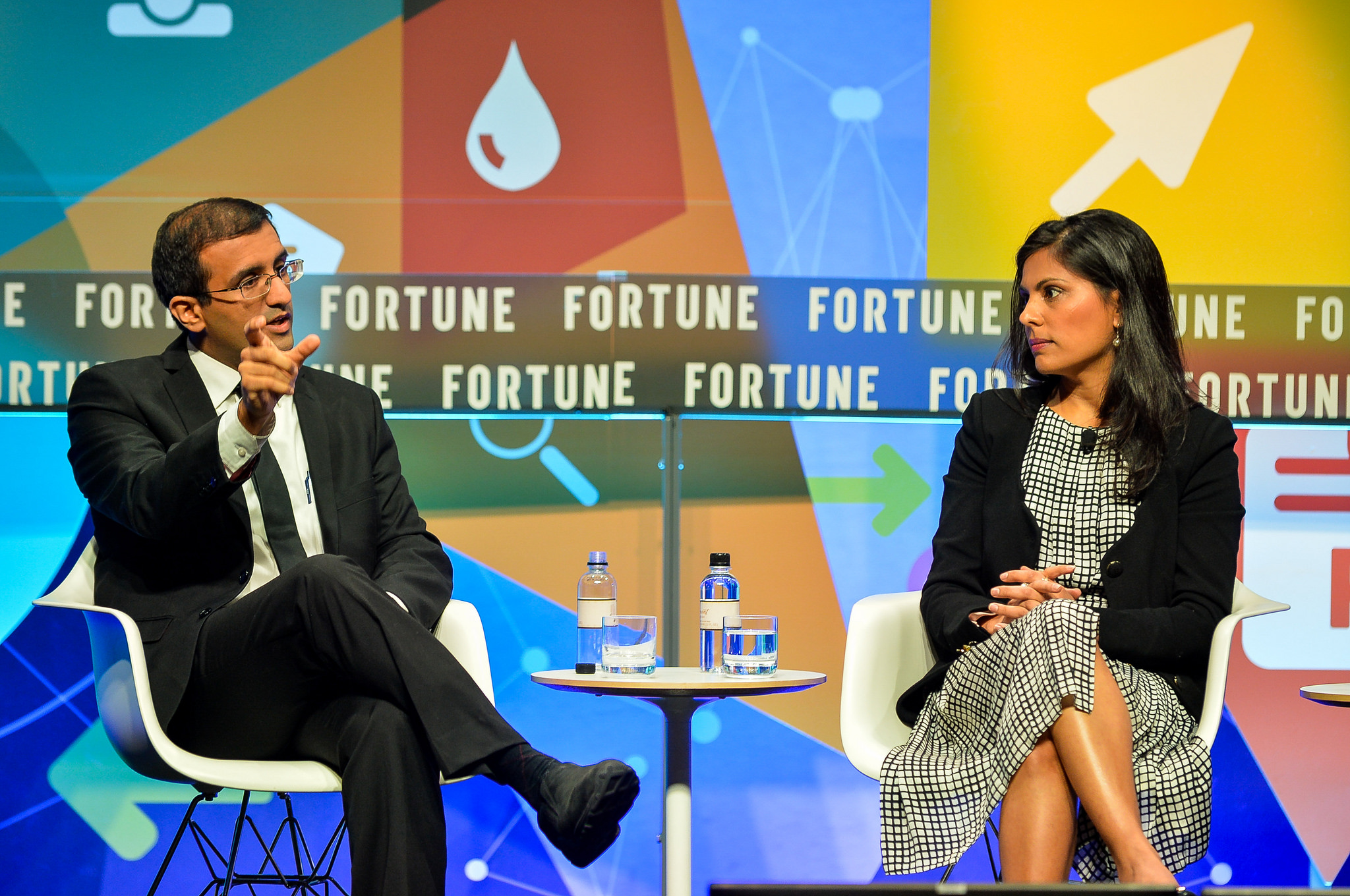
The Ebola outbreak of 2014 infected more than 28,000 people in West Africa and killed more than 11,000. It also exposed gaps in the world’s ability to respond to epidemics of infectious diseases.
Are we more prepared now to respond to future emerging disease outbreaks? Experts say countries are better positioned, but there’s still a lot of room for improvement. “[Ours] is not a culture of outbreak prevention,” said Dr. Nahid Bhadelia, medical director of the Special Pathogen Unit at the Boston University School of Medicine, during a panel at Fortune’s Brainstorm Health Conference on Wednesday. Bhadelia worked as an Ebola treatment unit clinician on four different trips to West Africa during the outbreak. “We chase one pathogen after another.”
MORE: The World Is Not Ready For The Next Pandemic
It’s critical for countries to find innovative ways to prevent another pandemic, experts said. Tapping into community resources is one crucial approach, said Dr. Raj Panjabi, the CEO of Last Mile Health, who trained 1,300 community health workers through his organization to offer care and work out logistics during the Ebola outbreak. Panjabi, who recently received the $1 million TED Prize, is now launching Community Health Academy, the largest group of community health workers in the world. By training community members to become health care workers for their neighborhoods, countries like Liberia were better able to respond to Ebola. The same will be true of future health crises, he says.
MORE: Here’s What You Need To Know About Zika Virus
Getting organized on a local level is also necessary for an adequate response. At the start of the Ebola outbreak, most health workers in Liberia were working as volunteers, Panjabi said. Now, the country has approved policies to train, equip and pay community health workers.
However, more support is needed to make sure nations are well prepared. “There’s not enough investment in these settings,” said Panjabi. “[Ebola] spread like wildfire across West Africa. Companies shut down, airlines started cutting their routes to West Africa. There are real consequences in not investing in the idea of health care for everyone, everywhere.”
As for the best approach for the United States to take, the experts at the panel argued that leaders should not forget the lessons learned from the outbreak. “One of the places we would really hurt ourselves would to be ignore the signals we’ve learned from Ebola,” said Panjabi. “You can’t bomb Ebola or put up a wall to stop Ebola.”
More Must-Reads from TIME
- Why Trump’s Message Worked on Latino Men
- What Trump’s Win Could Mean for Housing
- The 100 Must-Read Books of 2024
- Sleep Doctors Share the 1 Tip That’s Changed Their Lives
- Column: Let’s Bring Back Romance
- What It’s Like to Have Long COVID As a Kid
- FX’s Say Nothing Is the Must-Watch Political Thriller of 2024
- Merle Bombardieri Is Helping People Make the Baby Decision
Contact us at letters@time.com